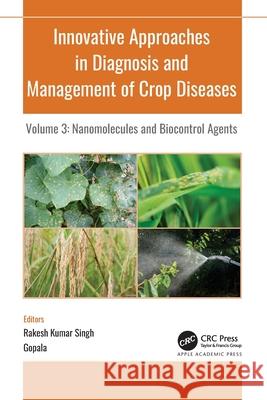Innovative Approaches in Diagnosis and Management of Crop Diseases » książka
topmenu
Innovative Approaches in Diagnosis and Management of Crop Diseases
ISBN-13: 9781774639542 / Angielski / Inna / 2024
Innovative Approaches in Diagnosis and Management of Crop Diseases
ISBN-13: 9781774639542 / Angielski / Inna / 2024
cena 404,81 zł
(netto: 385,53 VAT: 5%)
Najniższa cena z 30 dni: 400,67 zł
(netto: 385,53 VAT: 5%)
Najniższa cena z 30 dni: 400,67 zł
Termin realizacji zamówienia:
ok. 22 dni roboczych
Bez gwarancji dostawy przed świętami
ok. 22 dni roboczych
Bez gwarancji dostawy przed świętami
Darmowa dostawa!
Volume 3: Nanomolecules and Biocontrol Agents explores the use of new ways to prevent and mitigate plant diseases.











